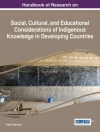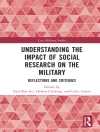Long-term environmental effects of chemical exposure have long been of concern and, more recently, chemicals which cause changes to the sexual development of exposed organisms have been identified. It is thought that low-level exposure to a wide range of chemicals may be affecting endocrine function, leading to a reduction in fertility and an increase in reproductive cancers. Endocrine Disrupting Chemicals reviews the scientific evidence and attempts to put the subject into context. Along with an overview of the issue, there is discussion of the specialised aspects in relation to wildlife; environmental oestrogens and male reproduction; and naturally occurring oestrogenic substances. With contributions from representatives of the Medical Research Council’s Institute for Environment and Health and the US Environmental Protection Agency, the articles provide a comprehensive and detailed review of current issues. This book will be of interest to a wide readership, including industrial and environmental scientists, managers and policy makers.
Table of Content
Overview of the Endocrine Disrupters Issue;
Environmentally Induced Endocrine Abnormalities in Fish;
Effects of Endocrine Disrupting Chemicals in Invertebrates;
Endocrine Disruption in Mammals, Birds, Reptiles and Amphibians;
Oestrogens, Environmental Oestrogens and Male Reproduction;
Human Health Effects of Phytoestrogens;
Endocrine Disrupter Research and Regulation in the United States;
Subject Index.
About the author
Ron Hester is an emeritus professor of chemistry at the University of York. In addition to his research work on a wide range of applications of vibrational spectroscopy, he has been actively involved in environmental chemistry and was a founder member of the Royal Society of Chemistry’s Environment Group. His current activities are mainly as an editor and as an external examiner and assessor on courses, individual promotions, and departmental/subject area evaluations both in the UK and abroad.












